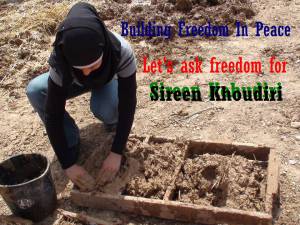Category: Reports
-
UPDATED: Palestinian activist arrested in night raid in Nablus
07th January 2014 | International Solidarity Movement, Nablus Team | Nablus, Occupied Palestine Updated 10th January: Sireen Khudairi was released at 17:15 on the 8th of January. Sireen was brought inside Salem Court at 10:30am after being made to stand outside for an hour with her hands and feet shackled and without a jacket. Once brought into the courtroom…
-

Illegal settlers burn two cars in the village of Madama
08th January 2014 | International Solidarity Movement, Nablus Team | Madama, Occupied Palestine Today, the 8th January 2014, at approximately 3am settlers entered the Palestinian village of Madama, south of Nablus and set fire to two cars. The cars were parked in the village center beside the home of the car owners. A villager from Madama and owner of one…
-

Clashes in Qusra: olive trees destroyed and settlers beaten
08th January 2014 | International Solidarity Movement, Nablus Team | Qusra, Occupied Palestine Clashes between Israeli forces and Palestinian youth erupted yesterday after settlers attacked villagers from Qusra on their fields. Palestinians captured a group of settlers on their way to Qaryut after they had destroyed a number of olive trees. In the morning of the…

